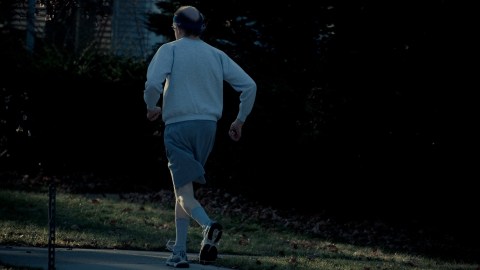Running Delays Aging at a Cellular Level

Walking in your old age has many benefits, according to researchers — improving memory, preventing illness, and so on. But the real ticket to staving off old age and maintaining a better quality of life may lie in running.
Gretchen Reynolds of The New York Times highlights a small study out of Boulder, Colorado that’s telling seniors to run, not walk. Researchers at the University of Colorado in Boulder and Humboldt State University in Arcata, California, noticed that aging walkers tend to decline over time. Is time’s decay really inescapable, or is there something else at work here, they wondered.

The researchers put out a call to older running and walking groups to participate in a study — 30 men and women aged 60 to 70 answered the call. The group was split into two; half of the group was tasked with walking for 30 minutes three times a week, while the other half was told to run for the same amount of time. The research team then measured their oxygen intake and biomechanics while both groups walked on a treadmill at the study’s conclusion.
They found that the running group walked far more efficiently than the walking group; while the walking group expelled as much energy as someone who was sedentary seven days out of the week. The researchers speculate that the difference lies within the muscle cells and the amount of mitochondria produced.
Mitochondria provide energy, which allows people to move longer with less effort. What’s more, runners possess better muscle coordination than their walking counterparts, which means the runners are able to go longer without consuming as much energy.
The good news is, it’s not too late to start. Justus Ortega, an associate professor of kinesiology at Humboldt University, who led the study stated: “Quite a few of our volunteers hadn’t taken up running until they were in their 60s.”
Photo Credit: Maxwell GS/Flickr




